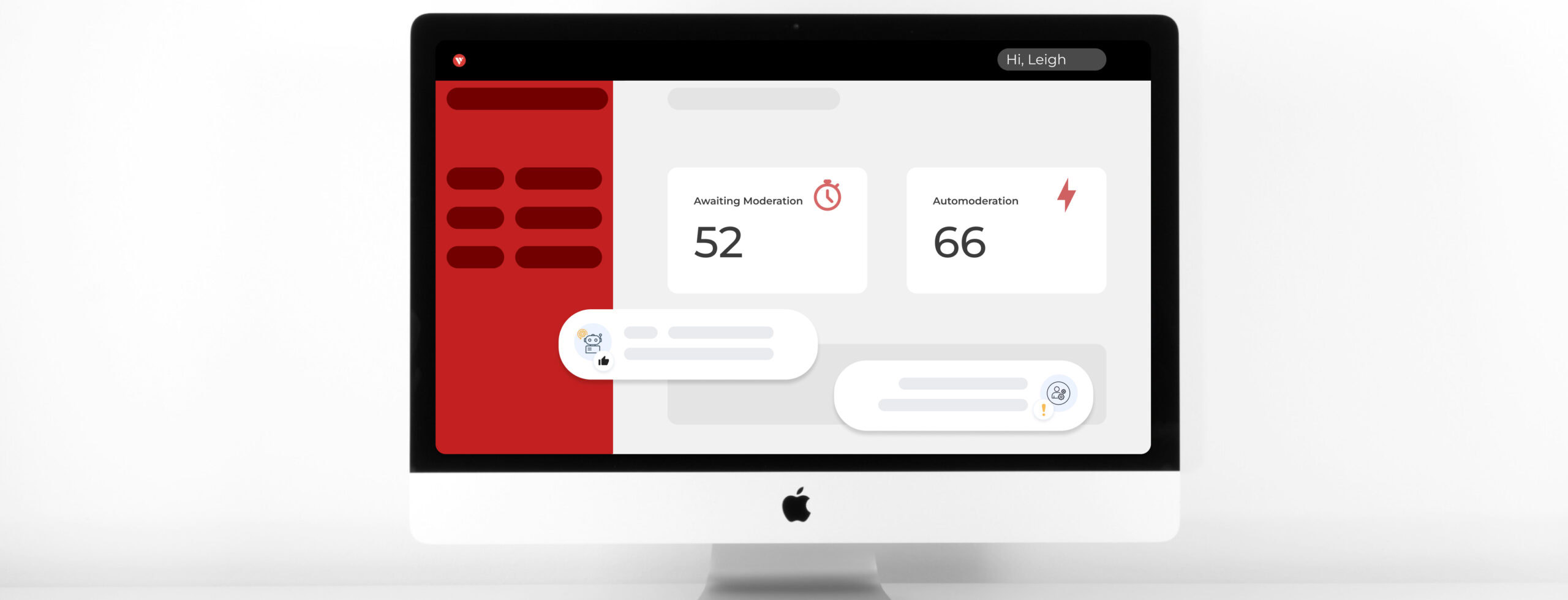Colmare le divisioni online: Guida alla moderazione dei commenti, al galateo di Internet e a una maggiore civiltà

As a news fiend, a data enthusiast, and amateur philosopher, I spend my days pondering the future of the media industry and developing best practices to make the internet a better/safer/more inclusive place.
It’s an interesting time to say the least.
[divider line_type=”Full Width Line” line_thickness=”3″ divider_color=”black” divider_opacity=”90″ animate=”yes”]
Siamo tornati alla normalità in quasi tutti i settori dopo l’era Covid, ma c’è un’area che continua a crescere per la connettività: la sezione dei commenti.
- Will Trump win the next election?
- Will Caitlin Clark’s surgance in the WNBA turn a new leaf for the sport?
- Was Jeremey from Love is Blind engaged while filming for the show?
And publishers are stuck in the middle. As they strive to provide a space for their readers to engage, and exchange ideas, they are faced with increasingly divisive rhetoric, calls for free speech competing with increasing attempts to legislate online accountability.
[divider line_type=”Full Width Line” line_thickness=”3″ divider_color=”black” divider_opacity=”90″ animate=”yes”]
Ho trascorso più di 15 anni a immergermi nei commenti e a tenere il polso di come gli utenti reagiscono alle notizie, e negli ultimi anni ho assistito a un aumento senza precedenti dell’inciviltà. Quando incontro i nostri clienti per affrontare questa sfida, valutiamo cosa possiamo risolvere con la nostra tecnologia e le ultime funzionalità e spesso parliamo di come vogliono che gli utenti si comportino, senza però specificarlo. Nelle prossime settimane approfondirò i seguenti argomenti cosa possono fare gli editori, ma in definitiva le sezioni dei commenti sono a disposizione degli utenti e credo fermamente che il cambiamento debba iniziare proprio da qui. Gli editori scrivono le regole di ingaggio, i moderatori le fanno rispettare, ma solo gli utenti possono effettivamente creare una comunità. Gli anni passati a guardare le comunità crescere, litigare e festeggiare mi hanno dato una prospettiva su cosa funziona e cosa non funziona quando si tratta di rispondere agli altri online, principi guida su come modellare la critica costruttiva e la civiltà.
With a small dose of mindfulness and compassion, you can help make comment sections what they are meant to be, and what the majority of readers want them to be – a place where people of all stripes and colors can engage in an open, and civilized exchange of ideas.
- Pause Before You Post: It’s easy to get caught up in the heat of the moment and fire off a hastily composed response. Take a moment to consider the tone and content of your comment. Imagine you were using your real name. Ask yourself: Is it constructive? Is it respectful? Will it contribute positively to the conversation? If the answer to any of these questions is no, then maybe it’s best left unsaid.
- Keep It Civil: Remember that behind every username is a real person with thoughts, feelings, and experiences. Avoid personal attacks, insults, and derogatory language. We all have an uncle or grandparent who might not share our views on housing affordability, or who will win the Superbowl, and yet, we manage to converse without calling them names. Disagreement is natural, but how you choose to express it is often the difference between “content enabled” and “content deactivated.” Fun fact: moderators are trained to work against bias and will not remove comments simply because they don’t like what you said – over 95% of comments that are removed for personal attacks could be approved if they were edited to follow this rule. It’s not what you say, it’s how you say it
- Stick To The Topic: Stay on topic and relevant to the discussion at hand. While everything can be connected through enough tangents, comments should remain relevant to the primary thrust of the page. Off-topic remarks can derail conversations and lead to confusion and frustration for other participants. Fun fact #2: Comments about moderation are almost always off-topic
- Fact-Check Before You Share: Publishers are increasingly cracking down on mis/disinformation that can spread like wildfire in commenting sections. Misleading or false information can stoke the flames, and contribute to confusion and misunderstandings. Take the time to fact-check your sources and provide evidence to support your claims beyond the original source. You can check out Google’s fact checking tools and tips here.
- Fight Fair: If someone offers constructive criticism or differing viewpoints, repeat step 1. Before responding, try to understand where they might be coming from, to approach it with an open mind. Engage in thoughtful discussion and be willing to reconsider your own perspectives. Remember, it’s okay to agree to disagree respectfully. And admitting you are wrong can go a long way to bridging divides.
- Don’t Feed the Trolls, Report Them: When you (inevitably) encounter users who do not play by these principles, it can be tempting to jump in and point out their missteps, tell them how wrong they are, or correct their misinformation. However, the most productive thing you can do is to not further escalate the conflict, but use flagging or reporting tools available on-site to let moderators know so they can take action. But be careful! Reporting content that doesn’t violate guidelines may land you in the hot seat.